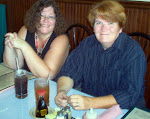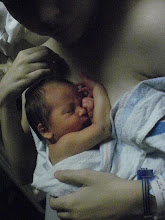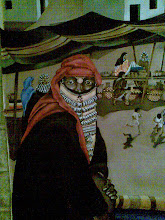 Mary Travers of Peter, Paul and Mary died on Wednessday in a Connecticutt Hospital. The information below was posted on the band's Website. (http://www.peterpaulandmary.com/)
Mary Travers of Peter, Paul and Mary died on Wednessday in a Connecticutt Hospital. The information below was posted on the band's Website. (http://www.peterpaulandmary.com/)Mary Travers was an iconic folk singer, a dedicated activist, a writer and a poet, a mother, and, along with Peter Yarrow and Noel (Paul) Stookey, a member of perhaps the most influential folk music trio in American history.
Peter, Paul & Mary became famous for their ability to convey powerful personal and political messages through a repertoire of songs that became, for millions of Americans, an introduction to political awareness and activism in the movements born in the 60’s; movements for freedom, justice and social equity. For many, Peter, Paul & Mary became the soundtrack of their participation in an ongoing commitment to a progressive American vision of social equity, justice and freedom.
Mary Travers was born in November 1936, in Louisville, KY, but spent the majority o f her childhood and teen years in New York City’s Greenwich Village, a crucible of creativity and progressive thought. She was an early member of the Village folk scene of the 50s, singing weekly at the Sunday afternoon folk music gatherings in Washington Square Park where the great folk artists of the day would congregate. Mary recorded with a gifted group of teenagers, dubbed “The Song Swappers,” who released two memorable albums, and appeared twice at Carnegie Hall with Pete Seeger. Among Mary's other musical influences were Paul Robeson, Josh White, Jo Mapes, Bob Gibson and Ronnie Gilbert of the Weavers. While still in her teens, Mary sang in a Broadway review starring Mort Saul, a highly successful comedian and political satirist.
f her childhood and teen years in New York City’s Greenwich Village, a crucible of creativity and progressive thought. She was an early member of the Village folk scene of the 50s, singing weekly at the Sunday afternoon folk music gatherings in Washington Square Park where the great folk artists of the day would congregate. Mary recorded with a gifted group of teenagers, dubbed “The Song Swappers,” who released two memorable albums, and appeared twice at Carnegie Hall with Pete Seeger. Among Mary's other musical influences were Paul Robeson, Josh White, Jo Mapes, Bob Gibson and Ronnie Gilbert of the Weavers. While still in her teens, Mary sang in a Broadway review starring Mort Saul, a highly successful comedian and political satirist.
 f her childhood and teen years in New York City’s Greenwich Village, a crucible of creativity and progressive thought. She was an early member of the Village folk scene of the 50s, singing weekly at the Sunday afternoon folk music gatherings in Washington Square Park where the great folk artists of the day would congregate. Mary recorded with a gifted group of teenagers, dubbed “The Song Swappers,” who released two memorable albums, and appeared twice at Carnegie Hall with Pete Seeger. Among Mary's other musical influences were Paul Robeson, Josh White, Jo Mapes, Bob Gibson and Ronnie Gilbert of the Weavers. While still in her teens, Mary sang in a Broadway review starring Mort Saul, a highly successful comedian and political satirist.
f her childhood and teen years in New York City’s Greenwich Village, a crucible of creativity and progressive thought. She was an early member of the Village folk scene of the 50s, singing weekly at the Sunday afternoon folk music gatherings in Washington Square Park where the great folk artists of the day would congregate. Mary recorded with a gifted group of teenagers, dubbed “The Song Swappers,” who released two memorable albums, and appeared twice at Carnegie Hall with Pete Seeger. Among Mary's other musical influences were Paul Robeson, Josh White, Jo Mapes, Bob Gibson and Ronnie Gilbert of the Weavers. While still in her teens, Mary sang in a Broadway review starring Mort Saul, a highly successful comedian and political satirist.The folk group, Peter, Paul & Mary, began with Mary and “the boys”, as she called them, in Noel Paul’s East Village apartment singing “Mary Had A Little Lamb” which launched what was to become an almost 50 year career arc.
With her stature, long, flowing blonde hair and signature bangs, and her arresting and passionate vocal delivery, Mary Travers became an irresistible force in Peter, Paul and Mary’s performances. These performances helped bring the folk scene to the broad American public, ushering in the Folk Renaissance of the 1960s.
The trio first performed in Greenwich Village’s “The Bitter End” coffee house, but soon grew from a village phenomenon to become the dominant force on radio's music programming as the subject matter of songs changed from relatively benign pop lyrics to messages of content and conscience that stirred the nation as it came to embrace the Civil Rights Movement and, later, the Anti-War Movement of the late sixties and early seventies.
Along with Noel Paul Stookey and Peter Yarrow, Mary, beyond the music that she recorded and sang, became a spokesperson for the movements that were to change the direction of America for decades to come. Championing the rights of the disenfranchised and the legitimacy of those who advocated for greater fairness at home, Mary, along with her partners in the trio, advocated for dedication to principle, rather than simple dominance, in America’s policies abroad.
Peter, Paul & Mary’s self-titled debut album, released in 1962, rose rapidly to the top of the “charts,” and remained in the Top Ten for ten months, and the Top 20 for two years. Their first hit single, “Lemon Tree” was swiftly followed by "If I Had a Hammer" which became an anthem of the Civil Rights movement” and was performed by the trio at the 1963 March on Washington where Dr. Martin Luther King, Jr. delivered his legendary “I Have a Dream” speech.
Peter, Paul And Mary touched the lives and hearts of tens of millions of people with their songs -- a message they lived in their personal and public lives as much as they sang it in concerts and memorialized it on records. With the exception of one multi-year break in their touring, the trio traveled throughout America, Europe, Asia and Australia, spreading the message they inherited, and carried forward, from Pete Seeger, The Weavers, Woody Guthrie and innumerable, nameless, creators of the folk legacy.
They sang together over a span of almost 50 years during their career. They won five Grammy's, produced 13 Top 40 hits, of which 6 ascended into the Top 10 - as well as eight gold and five platinum albums, including songs such as "Blowing' In The Wind," "If I Had A Hammer," "Leaving On A Jet Plane," "Where Have All The Flowers Gone," "500 Miles" and, of course, "Puff, The Magic Dragon."
At the end of almost a decade of intense togetherness, the trio gave themselves seven years in which to pursue individual interests. Mary found her own interests and pursuits to be wide ranging. Along with recording solo albums, "Mary" (1971), "Morning Glory" (1972), "All My Choices" (1973), and "Circles" (1974), Travers performed with symphonies, hosted a syndicatedradio show, lectured at colleges on “Society and its Effect on Music,” and wrote newspaper editorials and commentary. She also produced, wrote, and starred in the BBC series "Rhymes & Reasons," which dealt with societal mores and changes in recent times.
In this period, Mary continued her activism on behalf of human rights. Her commitments included an active role in the Washington based Center for the Development of International Policy, a non-profit that sends fact-finding missions to countries where American Foreign Policy has a particularly meaningful impact. Travers participated in missions to El Salvador and Nicaragua. In 1983, through the UAHC (Union for American Hebrew Congregations) she visited the Soviet Union to learn first-hand about the challenges facing Russian Jews. While there, she gave intimate concerts in the homes of “Refusnik” Jews’, those Jews denied application for release and emigration from the Soviet Union.
During the '80s, after their rejuvenating years of personal re-definition, Mary and her longtime performing partners became deeply involved in efforts to raise the consciousness of Americans about US support of a repressive regime in El Salvador, as well as the refusal of the American government to grant sanctuary status to those targeted by El Salvadorian government sponsored "death squads". The trio also became highly vocal in opposing America’s funding of a mercenary army in Nicaragua that was committed to destabilizing and crushing a legitimately, albeit Socialist, elected government.
Later years brought about many advocacies shared by the trio. They joined and performed at national marches for women's choice in the nation's capital, demonstrated in support of the Anti-Apartheid Movement committing an act of civil disobedience that led to the trio's arrest in front of the South African Embassy, including Mary, Mary's mother and daughter. They mounted a campaign to alert New Yorkers to the reality of homelessness as more a phenomenon involving women and children in dire straights than the conventional view of the homeless as irresponsible drunks and vagrants. And, they reprised their support of Cesar Chavez in the 1960s, making an appearance to support the migrant strawberry workers in California.
Many other efforts thread their way through the lives and performances of the trio, and continued virtually until their last concert performed in New Brunswick N.J on May 20, 2009. It was here where Mary received numerous standing ovations that recognized her life and work, her courage and her determination in facing the lingering effects of chemotherapy--a treatment that allowed her to conquer Leukemia through a bone marrow/stem cell transplant. At this final performance, Mary and her two friends of almost 50 years were by her side, supporting and protecting Mary with great love, pride and compassion, sang the iconic songs that always ended their concerts, "Blowing In The Wind" and "If I Had A Hammer" followed by their encore, "This Land is Your Land". This was a testament to their relentless optimism about, and love for, America, and the pursuit of freedom, equality and justice it represents.

“We’ve learned that it will take more than one generation to bring about change," Mary once said. “The fight for civil rights has developed into a broader concern for human rights, and that encompasses a great many people and countries. Those of us who live in a democracy have a responsibility to be the voice for those whose voices are stilled."
Mary is survived by her beloved husband Ethan Robbins, her daughters Alicia and Erika, her sister Ann Gordon, Ph.D, and her granddaughters Wylie and Virginia.















































We should ALL try to live so well and leave behind such a legacy.
ReplyDeletePeter, Paul, and Mary were a big part of the girls' childhood. We listened to "Peter, Paul, and Mommy" and "Peter, Paul, and Mommy Too" in the car on long trips, including trips to visit you. They take up a big chunk of memory on my iPhone and are part of what I regularly listen to.
ReplyDeleteMary lead a good life and will be sorely missed.